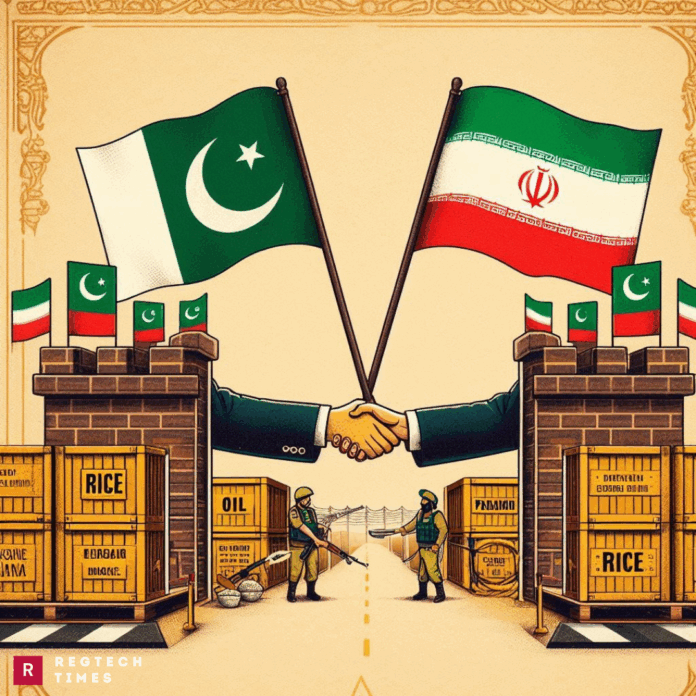Pakistan has taken a bold move to make trading with Iran easier. The Ministry of Commerce has introduced a new system called the barter trade mechanism. This means that instead of using money, Pakistan and Iran can now directly exchange goods — for example, rice for oil or fruit for machinery. This is a different way to do business and helps avoid using banks or US dollars, which can be tricky due to international sanctions on Iran.
The idea is not new. Pakistan had already set up a system for barter trade in 2023 to help boost trade with countries like Iran, Afghanistan, and Russia. However, the system didn’t work well at first. There were many rules and problems that made it hard for businesses to use it.
Now, Pakistan is making changes to fix those problems. The new plan will change the current trade laws, making it easier to add more items that can be traded. This brings the system more in line with Pakistan’s overall export rules.
A group from the Senate recently met with the Ministry of Commerce and gave full support to this new plan. They agreed that something must be done, especially since Pakistan isn’t exporting anything to Iran right now. They want this to change as soon as the system is ready.
Key Problems and Smart Fixes
Even though the barter trade idea is good, there were many problems stopping it from working properly. One big issue was that the rules only allowed a small list of items that could be traded. This made it hard for businesses that wanted to deal in other goods. Also, there was confusion over who would check if the products being traded were allowed or not.
Another problem was that businesses had to get their trade deals checked by Pakistan’s embassies in other countries. This made the process slow and complicated. To fix this, the new plan removes that step. Now, companies can simply provide a signed letter saying that they are not dealing with anyone who is banned or under sanctions. This makes the system faster and easier to use.
Pakistan is also dropping a confusing rule that said imports must come first before any exports. Now, companies can either import or export first — whichever works better for them. This change will give businesses more freedom and flexibility.
More Freedom for Traders and New Rules to Follow
The new barter trade system will also allow groups of companies to work together through a consortium. This means they can combine their efforts and do business together using one contract. It will help small and medium-sized traders who can’t take on large deals alone.
There’s also a new rule about money. Even though it’s a barter system, companies still need to show the value of what they traded. Now, they’ll have to do this every three months. This keeps things fair and transparent without involving actual cash payments.
To make these changes official, the Ministry of Commerce has prepared draft updates to the old rules. Once all the stakeholders such as government departments, banks, and businesses agree to these changes, a final notice will be sent out. This will make the updated barter system legally active.
This whole effort is part of Pakistan’s plan to improve trade with its neighbors. It also helps bypass some of the problems caused by global sanctions, especially against Iran. By making these smart and practical changes, Pakistan is trying to create new trade opportunities while staying within international rules.
For now, these changes are only in the approval stage, but they show a strong step forward in making the barter trade system work better. The plan is clear: simplify the process, increase the number of tradeable goods, reduce red tape, and give businesses more room to grow.


